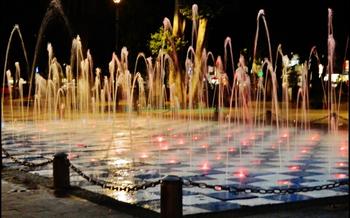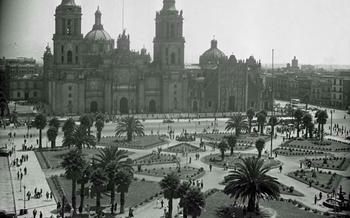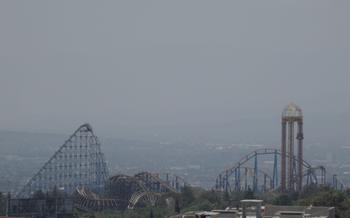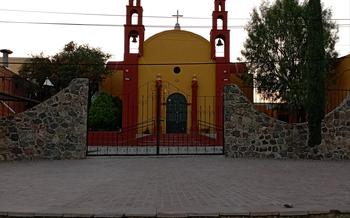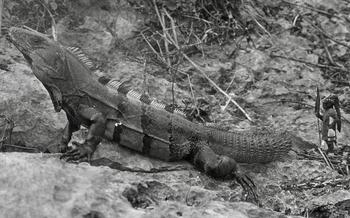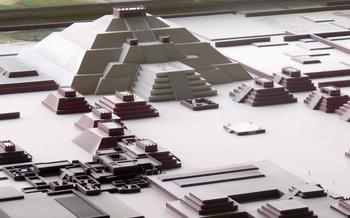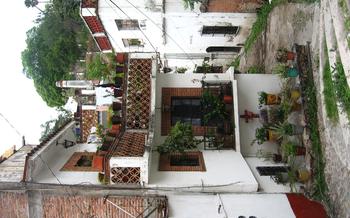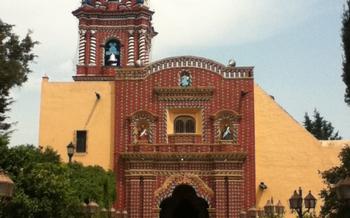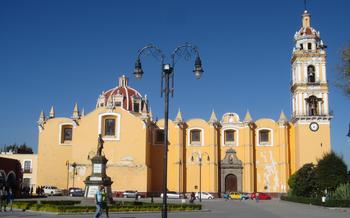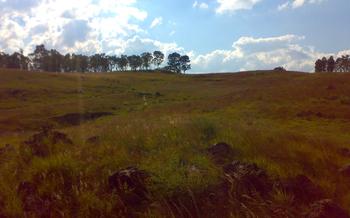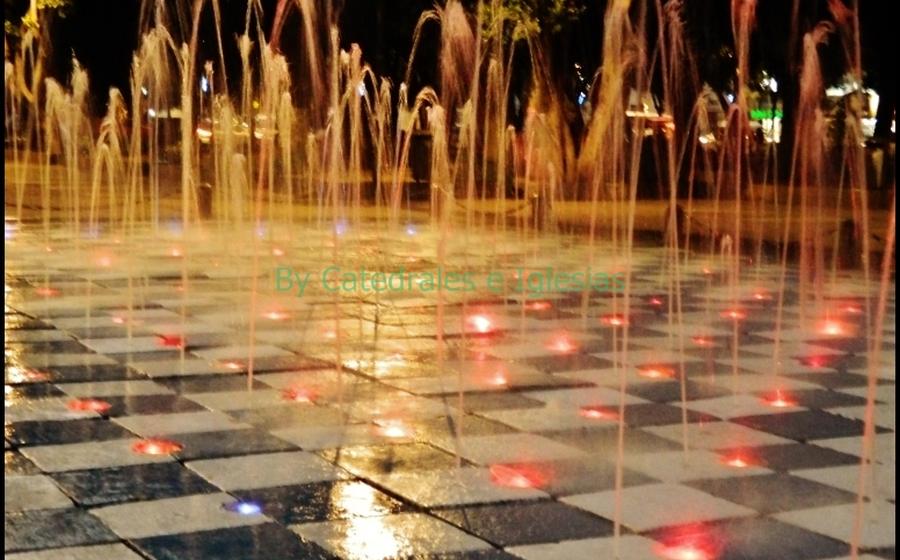
Museo de la Memoria Histórica Universitaria
- Location and Accessibility: Finding the Museum
- Admission and Hours of Operation: Planning Your Visit
- Historical Context: Understanding the Museum's Significance
- Temporary Exhibitions: Showcasing Contemporary Issues
- Educational Programs: Engaging with the Past
- Cultural Events: Fostering Dialogue and Expression
- The Museum Shop: Preserving Memories
- Accessibility for All: Ensuring Inclusivity
- Safety and Security: Ensuring a Secure Environment
- Photography and Videography: Capturing Memories
- Local Recommendations: Exploring Puebla's Treasures
- Insider Tip: Uncovering Hidden Gems
Location and Accessibility: Finding the Museum
The Museo de la Memoria Histórica Universitaria (MMHU) is conveniently located in the heart of Puebla, a vibrant and historic city in central Mexico. Situated on Avenida 11 Norte, between Calle 2 and 3 Oriente, the museum is easily accessible by public transportation or car. Visitors can take the metro to the nearest station, Pino Suárez, and walk a short distance to the museum. Alternatively, they can take a taxi or ride-sharing service directly to the museum's entrance. For those arriving by car, there are several parking options nearby, including street parking and paid parking lots. The museum is wheelchair-accessible, with ramps and elevators throughout the building, ensuring that visitors with disabilities can fully enjoy their visit.
Admission and Hours of Operation: Planning Your Visit
Visiting the Museo de la Memoria Histórica Universitaria (MMHU) is an enriching experience that allows visitors to delve into the historical and cultural significance of Puebla. To ensure a smooth and enjoyable visit, it's essential to plan ahead.
General admission to the museum is $50 Mexican pesos for adults, with discounted rates of $25 pesos for students, seniors, and children. Guided tours are available for groups of 10 or more at an additional cost of $100 pesos per group. Guided tours provide an in-depth exploration of the museum's collection and offer valuable insights into the historical context and significance of the exhibits.
The MMHU is open to the public from Tuesday to Sunday, with varying hours of operation. From Tuesday to Friday, the museum is open from 10:00 AM to 5:00 PM, while on Saturdays and Sundays, it remains open from 10:00 AM to 4:00 PM. It is advisable to arrive at the museum at least an hour before closing to have ample time to explore the exhibits at a leisurely pace.
Historical Context: Understanding the Museum's Significance
The Museo de la Memoria Histórica Universitaria (MMHU) stands as a testament to the tumultuous political and social events that shaped Mexico's recent history. The museum's creation is deeply intertwined with the student movement of the 1960s and 1970s, a period characterized by widespread protests and demands for social justice and democracy. During this time, students played a pivotal role in challenging the authoritarian government and advocating for greater freedoms.
The student movement left an indelible mark on Mexican society, and the MMHU serves as a tangible reminder of this transformative period. The museum's collection includes artifacts, documents, and testimonies that shed light on the struggles, sacrifices, and achievements of the student activists. Through its exhibitions, the MMHU aims to preserve the memory of this crucial era and foster a deeper understanding of its lasting impact on Mexico's political and social landscape.
Temporary Exhibitions: Showcasing Contemporary Issues
In addition to its permanent collection, the MMHU regularly hosts temporary exhibitions that delve into contemporary social and political issues, reflecting the museum's commitment to fostering dialogue and critical thinking. These exhibitions showcase the works of renowned and emerging artists, addressing pressing concerns and offering diverse perspectives on current events.
Past temporary exhibitions have explored themes such as gender equality, environmental sustainability, and indigenous rights, featuring multimedia installations, interactive displays, and thought-provoking artwork. These exhibitions not only complement the museum's permanent collection but also contribute to the broader discourse on contemporary issues, inviting visitors to engage with and reflect upon the complexities of the present.
By presenting these temporary exhibitions, the MMHU serves as a platform for contemporary artists to share their perspectives and challenge conventional narratives. These exhibitions stimulate critical thinking, encourage dialogue, and contribute to a deeper understanding of the social and political forces shaping our world.
Educational Programs: Engaging with the Past
The Museo de la Memoria Histórica Universitaria (MMHU) extends its mission to the educational realm through a diverse array of programs catering to students, researchers, and the general public. These initiatives aim to foster a deeper understanding of the historical events and social struggles documented within its walls.
Workshops, conferences, and seminars are regularly organized by the museum to provide a platform for experts, scholars, and community members to engage in critical discussions and share their insights. These events delve into various aspects of Mexican history, contemporary social issues, and the significance of preserving collective memory.
The museum also collaborates with universities and research institutions, creating opportunities for interdisciplinary research and knowledge exchange. Scholars are granted access to the museum's extensive collection of documents and artifacts, enabling them to conduct in-depth studies on topics related to social movements, political transformations, and the fight for human rights in Mexico.
Through these educational programs, the MMHU serves as a vibrant hub for intellectual inquiry, promoting critical thinking, and encouraging the younger generation to actively engage with the past, fostering a sense of civic responsibility and a commitment to social justice.
Cultural Events: Fostering Dialogue and Expression
The Museo de la Memoria Histórica Universitaria (MMHU) not only serves as a repository of historical artifacts but also as a vibrant platform for cultural expression and dialogue. Throughout the year, the museum organizes a diverse range of cultural events that aim to foster intellectual engagement, promote social change, and celebrate the rich cultural heritage of Mexico. These events provide opportunities for visitors to explore contemporary issues, engage with artists and scholars, and participate in meaningful conversations about the past, present, and future.
Film screenings, concerts, lectures, and workshops are just a few examples of the cultural events hosted by the MMHU. Through these events, the museum seeks to create a space for critical thinking, artistic expression, and community building. Film screenings often showcase documentaries and independent films that shed light on important social and political issues, sparking discussions about human rights, social justice, and the struggles of marginalized communities.
Concerts and musical performances bring the museum's historic halls to life, filling them with the sounds of traditional Mexican music, contemporary compositions, and international melodies. These events not only entertain visitors but also provide a platform for local and international artists to showcase their talent and share their stories.
Lectures and workshops offer visitors the chance to engage with renowned scholars, activists, and experts in various fields. These events cover a wide range of topics, from history and politics to art and literature, providing attendees with insights into the complexities of contemporary society and the challenges facing Mexico and the world.
By hosting these cultural events, the MMHU goes beyond its traditional role as a museum and becomes a dynamic center for cultural exchange, dialogue, and social transformation. Visitors are encouraged to participate in discussions, share their perspectives, and contribute to the creation of a more informed and engaged citizenry.
The Museum Shop: Preserving Memories
The Museo de la Memoria Histórica Universitaria (MMHU) offers a unique opportunity to take a piece of history home. Its museum shop is a treasure trove of souvenirs and merchandise that celebrate the museum's collection and mission. Visitors can choose from a wide range of items, including books, postcards, and replicas of artifacts from the exhibitions.
The museum shop is not just a place to buy souvenirs; it's also a way to support the museum's mission to preserve and promote historical memory. By purchasing items from the shop, visitors contribute directly to the museum's ongoing work of collecting, documenting, and exhibiting the history of Mexico's student movement.
Whether you're looking for a gift for a friend or family member, or simply want to take a piece of the MMHU experience home with you, the museum shop is the perfect place to find something special. Every purchase you make helps to ensure that the museum continues its vital work of preserving Mexico's historical memory for future generations. So, take some time to browse the museum shop and find the perfect souvenir to commemorate your visit.
Accessibility for All: Ensuring Inclusivity
The Museo de la Memoria Histórica Universitaria (MMHU) is committed to providing equal access and a welcoming environment for visitors with disabilities. The museum's physical space is designed with accessibility in mind, featuring wheelchair ramps, elevators, and wide doorways throughout the premises. Visitors who require assistance can borrow wheelchairs from the museum's front desk.
For visitors with hearing impairments, the museum offers audio guides in various languages. These guides provide detailed descriptions of the exhibits, allowing visitors to fully immerse themselves in the museum's content. Additionally, visual aids and transcripts are available for visitors with low vision or blindness.
The museum staff is trained to assist visitors with disabilities and ensure their needs are met. They are happy to provide additional information or assistance to make sure that everyone has an enjoyable and educational experience at the MMHU.
Safety and Security: Ensuring a Secure Environment
The Museo de la Memoria Histórica Universitaria takes visitor safety and security very seriously. To protect its valuable collection and ensure a safe environment for all visitors, the museum has implemented a range of security measures. Visitors are reminded to be vigilant and report any suspicious activity to museum staff.
Prohibited Items: To ensure the safety of all visitors and the preservation of the collection, certain items are not permitted within the museum. These items include weapons, explosives, flammable substances, large bags, and tripods. Visitors are advised to leave these items at home or in their vehicles.
Behavior Guidelines: Visitors are expected to behave respectfully and responsibly within the museum. Running, shouting, and disruptive behavior are not tolerated. Visitors should also refrain from touching or leaning on the exhibits.
Emergency Procedures: In the event of an emergency, such as a fire or earthquake, visitors should remain calm and follow the instructions of museum staff. Evacuation routes are clearly marked throughout the museum. Visitors are advised to familiarize themselves with these routes before beginning their visit.
Security Staff: The museum employs a team of professional security guards who are responsible for ensuring the safety of visitors and the collection. Visitors are encouraged to approach security guards with any questions or concerns.
By following these safety guidelines, visitors can help to create a secure and enjoyable environment for all at the Museo de la Memoria Histórica Universitaria.
Photography and Videography: Capturing Memories
The Museo de la Memoria Histórica Universitaria welcomes visitors to capture their experiences through photography and videography. However, to ensure a respectful and enjoyable environment for all, certain guidelines must be followed.
Photography and videography are permitted for personal, non-commercial use only. Visitors are encouraged to take photos and videos to document their visit and share their experiences with others. However, using tripods, flash photography, and selfie sticks is prohibited to minimize disruption to other visitors and protect the exhibits.
When taking photos or videos, visitors are kindly requested to be mindful of the privacy of other visitors and refrain from capturing images that may be intrusive or disrespectful. Additionally, using the museum's images or videos for commercial purposes, such as advertising or marketing, is strictly prohibited without prior written permission from the museum's administration.
The museum actively encourages visitors to share their experiences on social media platforms. By using the official museum hashtags and tagging the museum's social media accounts, visitors can connect with other museum enthusiasts, share their memories, and help promote the museum's mission to a broader audience.
Remember, your photographs and videos can serve as a lasting memento of your visit to the Museo de la Memoria Histórica Universitaria. By following these guidelines, you can capture your memories while respecting the museum's collection and the experience of other visitors.
Local Recommendations: Exploring Puebla's Treasures
A visit to the Museo de has to offer. After delving into the city's past, take some time to explore its vibrant present.
Just a short walk from the museum, you'll find yourself in the heart of Puebla's historic center, a UNESCO World Heritage Site. Here, you can admire stunning colonial architecture, visit beautiful churches, and sample delicious local cuisine.
For a taste of authentic Mexican food, head to one of the many traditional markets, such as the Mercado de San Agustín or the Mercado del Parián. Here, you can find everything from fresh produce to handmade crafts.
If you're looking for a more modern experience, the Angelópolis Lifestyle Center is a great option. This shopping mall features a variety of international brands, restaurants, and a movie theater.
No matter what your interests are, you're sure to find something to love in Puebla. So take some time to explore this beautiful city and discover all that it has to offer.
Insider Tip: Uncovering Hidden Gems
As you wander through the Museo de la Memoria Histórica Universitaria, keep an eye out for a hidden gem tucked away in a corner of the museum: the "Sala de la Memoria" (Memory Room). This intimate space showcases personal objects and testimonies from individuals who lived through the tumultuous events of the 1960s and 1970s. From heartfelt letters and diaries to faded photographs and symbolic artifacts, these poignant relics offer a deeply personal glimpse into the lives and struggles of those who shaped Mexico's history. Take a moment to sit in this quiet room and let the stories of resilience, sacrifice, and hope wash over you, leaving an unforgettable imprint on your visit to the MMHU.
